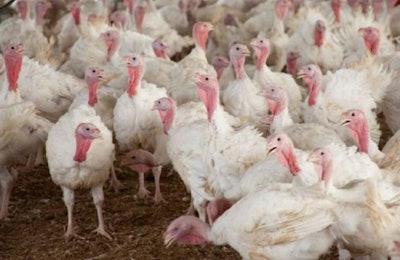
Recent outbreaks of highly pathogenic avian influenza (HPAI) taught the poultry industry the importance of biosecurity, according to Dr. John Glisson of USPOULTRY, who spoke at the association’s Feed Mill Management Seminar in Nashville, Tennessee, on March 16.
“The reason we don’t like biosecurity is it’s expensive and inconvenient, but we have to get over it. It’s something you have to do that you hate,” Glisson said.
In his presentation, “All In or All Out,” Glisson said the entire industry needs to join together to practice good biosecurity measures and prevent spread of the disease.
“Everybody’s got to be all in on keeping influenza at bay. If we don’t get all in, we’re going to be all out of luck and out of business,” he said.
New mindset needed to keep avian flu away
Glisson said a change in mindset is required in order to do that.
“We have a traditional mindset,” he said. “The new mindset is we need good biosecurity every day because (we need to assume) the next farm we go to may be infected.”
Glisson stressed that, even if only a few flocks are infected, the whole industry is affected.
“Birds get infected with a virus and start shedding the virus long before they get sick,” he said. “You cannot go into a flock of chickens and turkeys and say they’re fine. They could be infected and not show signs.”
Keep eyes on all possible contamination sources
While wild birds introduced HPAI on a few farms, it was spread between farms by movement of people, vehicles and equipment.
Glisson told the audience, mostly made up of feed mill managers: “Think about feed manufacture or delivery being a potential source.” He said the risk of contamination comes from raw materials, feed mills, logistics and storage, and silos and feeders.
Along with biosecurity, Glisson said the other important lessons learned from recent HPAI outbreaks were:
- Infected flocks must be killed quickly
- Testing of flocks near infected flocks must be done quickly and thoroughly
- All levels of government and industry must communicate and cooperate effectively

















